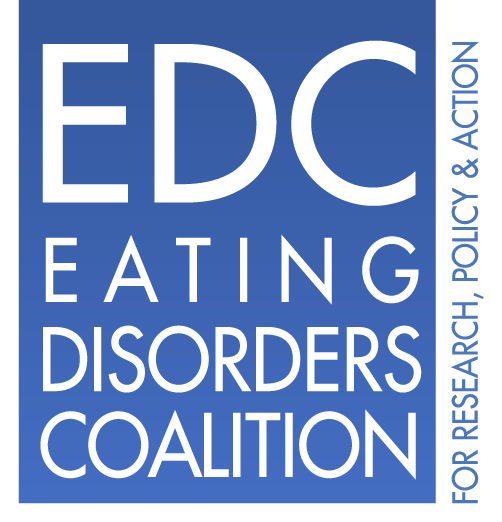The EDC works to elevate eating disorders as a public health priority across the United States. At the federal level, we pursue two main strategies to advance eating disorders policy
- Integrating eating disorders into existing and ongoing legislative initiatives.
- Shaping the Congressional agenda by advocating for the creation and introduction of new bills that support and improve the lives of those affected by eating disorders.
NUTRITION CARE ACT
The Nutrition CARE Act (H.R. 2495/S.1971), led by Representatives Chu (D-CA-28), Brian Fitzpatrick (R-PA-01), Paul Tonko (D-NY-20), and Don Bacon (R-NE-02) and Senators Maggie Hassan (D-NH), Murkowski (R-AK), Klobuchar (D-MN), and Capito (R-WV), will expand coverage for medical nutrition therapy under Medicare Part B, making it easier for people with eating disorders to access the counseling and support they need. Too many face barriers due to insurance limits and this bill would help ensure care is covered and accessible for those who need it most.
KIDS ONLINE SAFETY ACT
The Kids Online Safety Act (S.1748), led by Senators Marsha Blackburn (R-TN) and Richard Blumenthal (D-CT), will help protect children and teens from harmful online content including material that promotes eating disorders, cyberbullying, and other threats to youth mental health. It would require online platforms to take real steps towards creating safer digital spaces and giving families and young users greater control and transparency online.
FISCAL YEAR 2026 APPROPRIATIONS REQUESTS
- $5 million for SAMHSA's Center of Excellence for Eating Disorders to train primary care providers in the SBIRT-ED model and to launch a public service announcement campaign to enhance awareness of eating disorders
- $750,000 for the HHS Office on Women's Health to fund research grants for early detection and treatment protocols for women and girls with or at risk of eating disorders.
- Update to local school wellness policies to incorporate eating disorder prevention and education.
- Eating disorders continue as an eligible research topic under the Department of Defense' Peer-Reviewed Medical Research Program.
